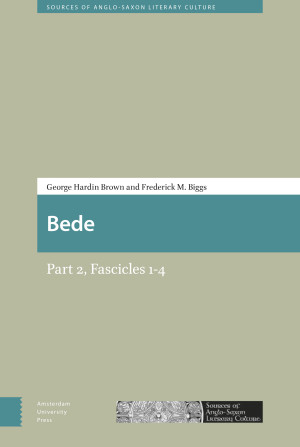This newest volume in a long-running work of mapping the sources of Anglo-Saxon literary culture in England from 500 to 1100 CE takes up one of the most important authors of the period, the eighth-century monk-scholar known as the Venerable Bede. Bede is best known as the author of the Historia ecclesiastica gentis Anglorum, which is one of the key sources for our historical and cultural knowledge of the period; this collection covers that and more, drawing on manuscript evidence, medieval library catalogues, Anglo-Latin and Old English versions, citations, quotations, and more, putting Bede and his work in the context of his period.

